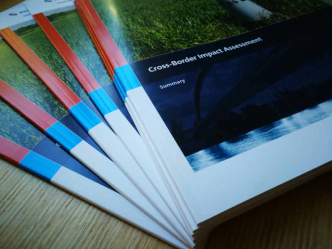1a. Netherlands-Germany tax treaty – Labour: In light of the new tax treaty between the Netherlands and Germany, which entered into force on 1 January 2016 , this dossier looks at the changes that the new treaty entails for cross-border workers. The focus here is on all cross-border workers who cross the border between Germany and the Netherlands.
1b. Netherlands-Germany tax treaty – Pensions: One aspect of the new treaty in particular attracted a lot of attention: the new article on pensions. The amendment, known as the ‘€15.000 threshold’, introduced in this article as a change from the old treaty, entails a number of financial consequences for pensioners living in Germany who have accrued pension in the Netherlands. The study looked specifically at the impact of the new pension article on post-active German cross-border workers from a Dutch tax law perspective.
2. Recognition of professional qualifications.: Central to this study on the recognition of professional qualifications is the question of how certain practical issues of particular importance to frontier workers should be implemented and enforced in certain countries/states following the modernization of Directive 2005/36/EC as a result of Directive 2013/55/EU.
INTERREG programmes: The research within this dossier is an inventory and comparative study of the three INTERREG VA programmes on the Dutch border. The INTERREG programme Germany-Netherlands, the INTERREG VA programme Euregio Meuse-Rhine (a German-Dutch-Belgian programme) and the INTERREG VA programme Flanders-Netherlands were chosen as the research framework.
4. Social security: This research focuses on Dutch short-term and long-term disability (sickness and disability) and the effects of this system in a cross-border situation. The reason for this choice is that the Dutch systems to support these two social security risks have been fundamentally restructured over the past two decades and are also very different from the systems in other member states.
5. Qualifying foreign tax obligation: On 1 January 2015, the optional scheme for the income tax, was replaced by the new system of the qualifying foreign taxpayer. The qualifying foreign taxpayer is entitled to the same deductions and tax credits as domestic taxpayers. The optional scheme was replaced because it was deemed to be not compatible with EU law. In this dossier we examine the extent to which the new scheme of the qualifying foreign taxpayer is in accordance with EU law.
6. Obligation to post workers: Cross-border posting of workers is a phenomenon that seems to be increasingly common. The study discusses the proposed revision of the Posting of Workers Directive and its potential legal implications for Dutch labour law.
7. Pension ages: For ITEM, the bill prompted a letter to the Standing Committee on Social Affairs and Employment to call attention to the position of employees who have accrued both a Dutch general old-age pension and a foreign statutory pension.That is the subject of this dossier.
8. Cross-border labor mediation.: The research on the “Effects of mandate and capacities of the Dutch UWV” revolves around the question of what effects the current mandate and capacities of the Dutch public service, the UWV, have on the functioning of cross-border job mediation along the border with Belgium and Germany.
9. Cross-border train traffic.: This dossier examines two effects of the Fourth Railway Package: first, the effects of the railroad package on the provision of cross-border transport, both public and commercial (European integration), and second, the strengthening of cross-border governance structures (Regional cohesion).
10. Belgian truck toll system: So far, no research has been done on the specific impact of this new toll system on logistics and freight forwarding companies in the German-Dutch region near the Belgian border. This is therefore the focus of this dossier.








